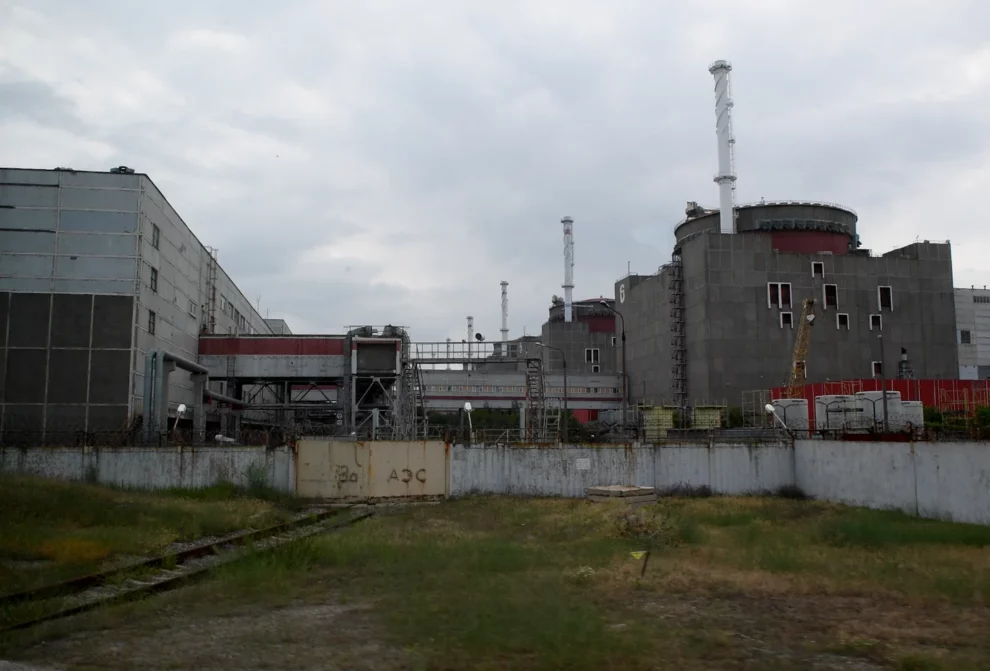Aseries of drones targeted the Zaporizhzhia nuclear power plant in the Russian-occupied part of Ukraine, damaging parts of the installation including the dome above one of the reactors.
The International Atomic Energy Commission, which has been in contact with Ukrainian and Russian authorities, confirmed the damage to the facility and that there was one casualty in the attack. Russia accuses Ukraine of the drone attack, although Kyiv denies responsibility. Russia’s state-owned nuclear agency reported that three were wounded in the attack, but said that there was no sign of any major damage or changes in radiation levels.
The attack resulted in the most serious damage to the nuclear power plant, which sits near the front lines of the ongoing war, in more than a year. The IAEA, the United Nations’ main watchdog organization for atomic energy, warned that there is the risk of a serious accident if fighting and attacks on the power plant continue.
“Damage at unit 6 has not compromised nuclear safety, but this is a serious incident with potential to undermine integrity of the reactor’s containment system,” the IAEA said in a statement.
Rafael Grossi, head of the IAEA, criticized the attack on the plant, saying that Sunday’s attack is a “major escalation of the nuclear safety and security dangers facing the Zaporizhzhya Nuclear Power Plant. Such reckless attacks significantly increase the risk of a major nuclear accident and must cease immediately.”
The Zaporizhzhia power plant has been at the front lines for much of the war, now in its third year. Ongoing fighting in the region, particularly next to the nuclear power plant, has led to pleas from international powers over the danger damage to the facility could pose. Despite that, both Ukraine and Russia have accused each other of instigating fighting near Zaporizhzhia. The U.S. Department of Defense previously blasted Russia for provocative actions after it shelled the area around the plant in 2022.
Since seizing the Zaporzhzhia power plant, Russian authorities have kept it running but have maintained military forces near the installation. It has faced serious challenges over the last two years, including losing off-site power at one point, forcing it to rely on a backup power source to keep the reactors cool.
According to the Bulletin of Atomic Scientists, the Zaporizhzhia nuclear power plant is built strong enough, and with safeguards installed after the Fukushima nuclear disaster, that stray rounds or minor damage would not create a meltdown or radiation leak. But the very real danger persists that any serious attack on or damage to the plant could lead to the release of large amounts of radiation.
The damage to Zaporizhzhia is not the only drone attack on Russian-controlled areas in the last few days. On Friday, Ukraine said that it launched drones into southern Russia, targeting an airfield that is home to aircraft used in the war in Ukraine. Kyiv claimed that it destroyed six planes and damaged eight more.
Source: Task Purpose















